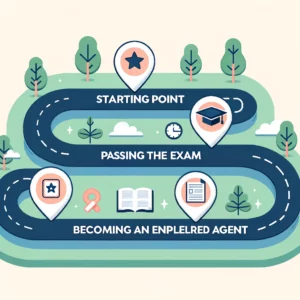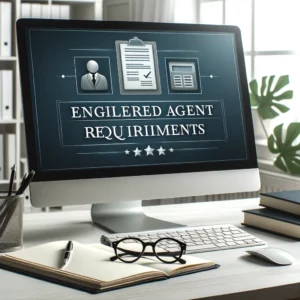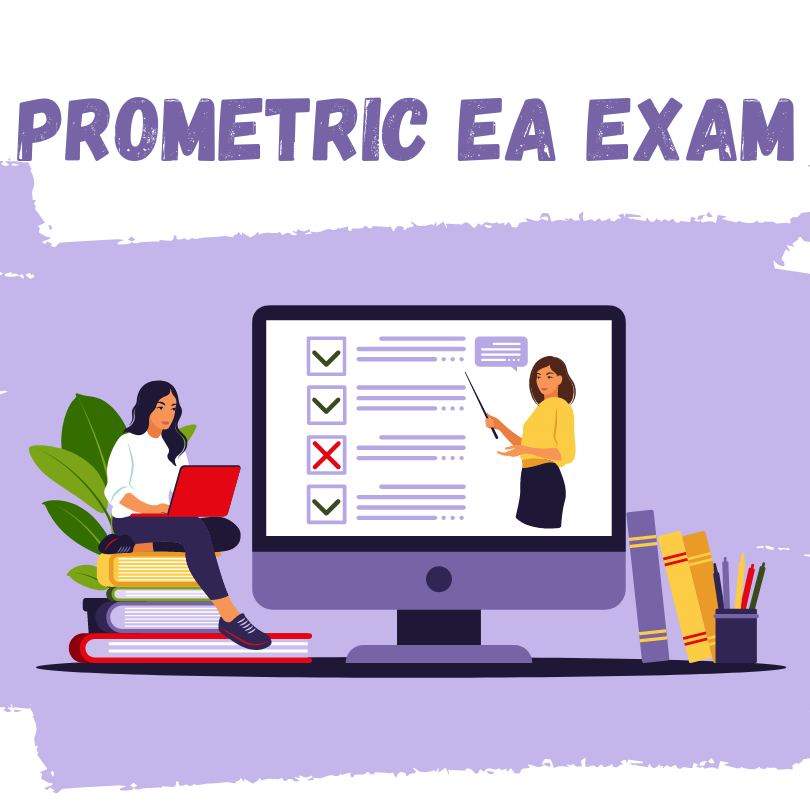Become an Enrolled Agent: Step-by-Step Guide
Passing the Enrolled Agent (EA) exam opens the door to...

An enrolled agent is a tax specialist authorized to represent taxpayers before the Internal Revenue Service (IRS). Obtaining the enrolled agent certification is crucial for professionals working in the tax field, as it provides numerous benefits and opportunities. This article provides a comprehensive guide explaining enrolled agent requirements for becoming an enrolled agent, including education, experience, exam details, continuing education, and the benefits of obtaining the certification.
Enrolled agents play a vital role in the tax industry, providing expert tax advice and guidance to individuals and businesses. They have the authority to represent taxpayers in all 50 states regarding federal tax matters, making them highly sought after by those in need of tax assistance. In this article, we will delve into the specific enrolled agent requirements and steps to become an enrolled agent, as well as explore the benefits and opportunities that come with this esteemed certification.

An important enrolled agent requirement is obtaining a preparer tax identification number (PTIN) from the IRS. This unique identification number is a requirement for tax return preparers and is necessary for individuals who want to become enrolled agents. It is obtained by completing an application and providing personal and business information, previous year’s tax returns, and payment for the issuance fee.
To become a certified tax professional, one must first understand the enrolled agent requirements. Understanding tax laws and regulations is crucial for becoming an enrolled agent, so education qualifications should focus on tax preparation and related subjects. This can be achieved through various educational paths. One example is completing a tax preparation course from an accredited institution. These courses cover topics such as individual and business tax law, tax planning strategies, and IRS regulations. By successfully completing this course, aspiring enrolled agents gain the necessary knowledge and skills to provide accurate tax advice and assistance to taxpayers.
If you’re contemplating a career in tax consultation, familiarizing yourself with enrolled agent requirements is a pivotal first step. For a lot of students, one key missing requirement is the education requirement. There is no specific education requirement to become an enrolled agent.

The IRS has a dedicated section on their website detailing the specific enrolled agent requirements for applicants. Practical experience in tax preparation and representation is highly valued for becoming an enrolled agent. Working under the IRS or gaining relevant employment experience can aid is helping someone obtaining their EA, but is not required.
Before diving into study materials, make sure they align with the latest enrolled agent requirements. Gaining experience in tax preparation and representation can be accomplished through various avenues. One example is working as a tax intern or assistant at a tax firm or accounting firm. This hands-on experience allows individuals to apply their knowledge of tax laws and regulations to real-life scenarios. They learn how to prepare tax returns, handle client inquiries, and navigate the tax preparation process under the supervision of experienced professionals. This practical experience is invaluable in developing the skills and expertise required to become an enrolled agent.
Volunteering for tax preparation programs is another way to gain experience. Programs such as the IRS Volunteer Income Tax Assistance (VITA) program provide free tax preparation services to low-income individuals and families. By volunteering, aspiring enrolled agents can gain practical experience in tax preparation while helping those in need. This experience demonstrates a commitment to community service and showcases the ability to handle various tax situations. It also provides an opportunity to work with diverse client populations and gain exposure to different tax scenarios.

The journey to becoming an enrolled agent begins by first understanding and fulfilling the enrolled agent requirements set by the IRS. The enrolled agent exam, known as the Special Enrollment Exam (SEE), consists of three parts covering individuals, businesses, and representation, practices, and procedures. To pass the exam, candidates should have a strong understanding of tax fundamentals and be familiar with basic tax formulas. On the exam day, candidates are required to provide identification and fingerprints as part of the security measures.
Given the meticulous nature of tax preparation and advice, the enrolled agent requirements are designed to ensure the highest level of expertise. The SEE is a comprehensive exam that tests candidates’ knowledge and understanding of various tax topics. Each part of the exam covers different areas of tax law and requires candidates to demonstrate their ability to apply tax rules and regulations to different scenarios. The exam consists of 100 multiple-choice questions for each part.
Navigating the enrolled agent requirements can be challenging without proper guidance. Preparation for the SEE exam is essential to increase the chances of success. Enrolled agent review courses and study materials provided by the IRS can be valuable resources in preparing for the exam. These resources cover the specific topics and concepts tested in each part of the exam, helping candidates focus their study efforts effectively. Additionally, taking practice exams can provide a realistic simulation of the actual exam experience and help candidates identify areas of weakness that require further study.

Meeting the enrolled agent requirements ensures that professionals possess the necessary expertise in tax regulations. Enrolled agents are required to complete a minimum of 16 hours of continuing education per year. Two of these hours must be focused on ethics. Continuing education ensures that enrolled agents stay updated with the latest tax laws and regulations, allowing them to provide accurate and reliable tax advice to their clients.
Continuing education for enrolled agents can take various forms, including attending seminars, workshops, and webinars. These educational opportunities cover topics such as recent tax law changes, updates in IRS procedures, and ethical practices in tax representation. By actively participating in continuing education, enrolled agents enhance their knowledge and skills, stay current with industry trends, and maintain their professional status. Many tax professionals opt for refresher courses to keep up-to-date with the latest enrolled agent requirements.
While the enrolled agent requirements are stringent, they are designed to uphold the highest standards of the profession. One example of continuing education for enrolled agents is attending an annual tax conference. These conferences bring together tax professionals and industry experts to discuss the latest developments in tax legislation, case studies, and best practices. By attending these conferences, enrolled agents can learn from experienced professionals, network with their peers, and gain valuable insights into emerging tax issues.
Another example is enrolling in online courses or webinars that focus on specific areas of tax law. These courses allow enrolled agents to deepen their knowledge in specialized areas such as international tax, estate planning, or tax controversy. By expanding their expertise, enrolled agents can offer a broader range of services to their clients and position themselves as trusted advisors in their respective fields. Achieving certification is not the end; ongoing education is crucial to maintain alignment with enrolled agent requirements.
Candidates often seek mentorship from experienced professionals to navigate the enrolled agent requirements effectively. Earning the enrolled agent certification can provide several advantages. Certified enrolled agents have higher earning potential compared to non-certified tax professionals. They also have unlimited practice rights, which means they can represent taxpayers in any state regarding federal tax matters. The certification deepens tax preparation skills and adds credibility to one’s resume, making it a valuable asset in the tax profession.
Meeting the enrolled agent requirements positions you as an expert in the field of taxation, giving clients confidence in your abilities. One example of the benefits of the enrolled agent certification is the increased demand for tax professionals with this designation. As the complexity of the tax code continues to grow, taxpayers rely on enrolled agents to navigate the intricacies of tax laws and regulations. The enrolled agent certification demonstrates a high level of expertise and knowledge in tax matters, making certified professionals highly sought after by individuals and businesses in need of tax assistance.
Another example of the benefits is the expanded career opportunities for enrolled agents. With the enrolled agent certification, tax professionals can work in various settings, such as tax firms, accounting firms, corporations, and government agencies. They can also choose to specialize in specific areas of taxation, such as international tax, estate planning, or tax controversy. The flexibility and versatility of the enrolled agent certification open doors to a wide range of career paths and advancement opportunities in the tax field. By fulfilling the enrolled agent requirements, professionals gain a competitive edge in the job market, thanks to the respect associated with the EA designation.
Additionally, the enrolled agent certification provides a competitive edge in the tax industry. Certified enrolled agents are recognized for their commitment to professional excellence and ethical conduct. This recognition enhances their reputation and credibility among clients, colleagues, and employers. It also fosters trust and confidence in their ability to handle complex tax matters, leading to long-lasting client relationships and professional success. Given the depth and breadth of the enrolled agent requirements, EAs are often sought after by individuals and businesses for complex tax scenarios.
Enrolled agents hold a federal license that allows them to represent taxpayers in any state regarding federal tax matters. Unlike certified public accountants (CPAs) and attorneys, enrolled agents can specialize solely in tax matters. Enrolled agents have the authority to negotiate with the IRS during examinations and appeals, sign consents, and execute agreements on behalf of taxpayers. While both fulfill the rigorous enrolled agent requirements and CPA exams, EAs specialize in taxation, whereas CPAs have a broader range of accounting expertise.
While both enrolled agents and CPAs play important roles in the tax industry, there are distinct differences between the two designations. CPAs have a broader focus on accounting and financial matters, encompassing areas such as auditing, financial reporting, and management consulting. Enrolled agents, on the other hand, specialize specifically in tax representation. Their expertise lies in understanding and navigating the complexities of the tax code. Both CPAs and those meeting the enrolled agent requirements are well-equipped to handle tax matters, but EAs typically undergo more specific tax training.
Attorneys, like enrolled agents, have the authority to represent taxpayers before the IRS. However, attorneys typically have a broader legal background, allowing them to provide comprehensive legal advice beyond tax matters. Enrolled agents, on the other hand, focus specifically on tax representation and possess in-depth knowledge of tax laws and regulations. Unlike attorneys who may specialize in various areas of law, those who meet the enrolled agent requirements focus exclusively on tax issues.
One advantage of the enrolled agent designation is the ability to practice in any state regarding federal tax matters. This nationwide practice privilege sets enrolled agents apart from CPAs and attorneys, who may be restricted by state-specific licensing requirements. Enrolled agents can effectively serve clients located in different states, offering tax representation services regardless of geographic boundaries. When comparing the three, it’s essential to understand that while the enrolled agent requirements make EAs tax specialists, CPAs offer a broader accounting perspective, and attorneys can navigate the legal intricacies.
Completing the enrolled agent requirements is a testament to one’s commitment to excellence in the tax profession, making EAs preferred choices for many employers. The process of becoming an enrolled agent involves several steps. First, review the requirements for becoming an enrolled agent, including education, experience, and exam details. Obtain a PTIN from the IRS, which is a requirement for tax return preparers. Study for the SEE exam, register for the exam, and take it. After passing the exam, complete the application for enrollment to practice before the IRS and pass a suitability check.
Enrolled agent requirements provide a structured learning path, ensuring that EAs are well-prepared to offer high-quality tax advice. One example of the steps involved in earning an enrolled agent certification is studying for the SEE exam. This requires creating a study plan, gathering study materials, and dedicating time to review and practice exam questions. By establishing a study routine and staying committed to the preparation process, individuals can increase their chances of success on the exam.
One of the benefits of completing the enrolled agent requirements is the recognition and credibility it brings on a national level. Another example of the steps is completing the application for enrollment to practice before the IRS. This involves providing personal information, educational background, and details of any prior tax-related convictions. The suitability check ensures that individuals seeking enrollment meet the IRS’s character and fitness requirements. By submitting a complete and accurate application, individuals demonstrate their commitment to professionalism and ethical conduct.
Once enrolled agent status is achieved, individuals can register with the IRS and become officially recognized as enrolled agents. This recognition grants them the authority to represent taxpayers before the IRS and opens doors to a wide range of career opportunities in the tax industry. By fulfilling the enrolled agent requirements, professionals gain a competitive edge in the job market, thanks to the respect associated with the EA designation.
The process of becoming an enrolled agent typically takes between three to eight months. The duration can vary depending on an individual’s preparation and dedication. Adequate preparation, including studying the required materials and focusing on exam readiness, can help expedite the process of becoming an enrolled agent. Meeting the enrolled agent requirements positions you as an expert in the field of taxation, giving clients confidence in your abilities.
The timeframe to become an enrolled agent depends on various factors, including the individual’s prior education and experience. For someone who already holds a bachelor’s degree in accounting or a related field, the process may be shorter. On the other hand, individuals without a relevant educational background may need to complete additional coursework, which can extend the timeframe. Many candidates find that practical experience complements their studies of the enrolled agent requirements.
The preparation time for the SEE exam is also a significant factor in the overall timeframe. Individuals who dedicate more time and effort to studying are likely to complete the exam preparation faster. Conversely, those who balance their exam preparation with other commitments may require a longer timeframe to adequately prepare for the exam. Investing in a quality study guide can be pivotal when preparing for the enrolled agent requirements.
Fulfilling the enrolled agent requirements is the first step towards a rewarding career in tax advisory. Enrolled agents are in high demand to assist taxpayers with IRS collection activities. Enrolled agent jobs are considered recession-proof, providing job security even in challenging economic times. Additionally, the IRS registration requirement for all paid preparers makes the enrolled agent designation valuable.
Given the meticulous nature of tax preparation and advice, the enrolled agent requirements are designed to ensure the highest level of expertise. The demand for enrolled agents continues to rise as taxpayers face increasingly complex tax issues. Enrolled agents possess the specialized knowledge and expertise to navigate the intricate tax laws and regulations, helping individuals and businesses resolve their tax matters effectively. They can provide guidance on tax planning, represent clients during IRS audits, and negotiate on their behalf during collection activities.
Every year, several aspiring professionals take up courses designed to help them meet the enrolled agent requirements. The recession-proof nature of the enrolled agent career is another significant advantage. Regardless of economic conditions, taxpayers will always require assistance with their tax obligations. Enrolled agents, with their in-depth understanding of tax laws and regulations, are well-positioned to provide the necessary support and guidance. This stability and job security make the enrolled agent career an attractive option for individuals seeking long-term professional success.
The IRS registration requirement for all paid preparers further highlights the value of the enrolled agent designation. Tax professionals who are not enrolled agents have limited ability to practice before the IRS and cannot represent taxpayers in certain situations. The enrolled agent certification sets individuals apart, demonstrating their commitment to professionalism and their ability to handle complex tax matters. This designation opens doors to a wider range of career opportunities and increases the credibility and trustworthiness of tax professionals in the eyes of clients and employers. The IRS has a dedicated section on their website detailing the specific enrolled agent requirements for applicants.
Completing the enrolled agent requirements paves the way for professionals to represent clients before the IRS, expanding their service offerings. Enrolled agents have the opportunity to expand their financial practice and reach by offering additional services and representing clients in different states. The credibility and increased expertise gained as an enrolled agent can lead to higher fees and better career prospects in the tax practice.
One example of expanding opportunities as an enrolled agent is offering tax planning and consulting services. By providing strategic advice and guidance on tax matters, enrolled agents can help individuals and businesses optimize their tax positions and make informed financial decisions. This additional service offering allows enrolled agents to serve as trusted advisors and build long-term relationships with their clients. EAs who’ve met the enrolled agent requirements are in high demand by tax preparation firms, especially during tax season, ensuring steady employment opportunities.
Another example is representing clients in different states. Enrolled agents have unlimited practice rights, which means they can represent taxpayers in any state regarding federal tax matters. This flexibility allows enrolled agents to work with clients across state lines, expanding their client base and geographic reach. By leveraging technology and communication tools, enrolled agents can effectively serve clients regardless of their location, further enhancing their career opportunities. Given the increasing complexity of tax laws, those who’ve mastered the enrolled agent requirements can command higher fees for their specialized expertise.
Corporations often seek out those who’ve undergone the enrolled agent requirements for in-house tax planning and compliance roles. As enrolled agents gain experience and expertise in the tax industry, they can command higher fees for their services. The credibility and trust associated with the enrolled agent designation enable professionals to position themselves as experts in the field, attracting high-value clients and commanding premium rates. This increased earning potential and better career prospects make the enrolled agent certification a valuable investment for individuals seeking to advance their tax practice.
Meeting the enrolled agent requirements can be a stepping stone to further certifications and specializations, broadening one’s career horizons. Becoming an enrolled agent requires meeting specific education, experience, and exam requirements. The enrolled agent certification offers numerous benefits, including higher earning potential, unlimited practice rights, and increased credibility. By following the steps outlined in this article, individuals can pursue a career as an enrolled agent and enjoy the opportunities and advantages that come with this esteemed designation.
The enrolled agent certification sets tax professionals apart in the industry, providing them with the necessary knowledge and skills to effectively represent taxpayers before the IRS. Through a combination of education, experience, and passing the SEE exam, individuals can become enrolled agents and embark on a rewarding career path. The ongoing commitment to continuing education ensures that enrolled agents stay current with tax laws and regulations, allowing them to provide the most accurate and reliable tax advice to their clients.
With international businesses booming, those familiar with the enrolled agent requirements can capitalize on cross-border tax planning opportunities. As the demand for enrolled agents continues to grow, individuals with this certification are well-positioned for success in the tax industry. The recession-proof nature of the enrolled agent career, coupled with the expanding opportunities for growth and specialization, make it a highly desirable profession. By becoming an enrolled agent, individuals can make a significant impact in helping individuals and businesses navigate the complex tax landscape while building a fulfilling and prosperous career.

Passing the Enrolled Agent (EA) exam opens the door to...

The journey to becoming an Enrolled Agent is both challenging...

Imagine gazing at a promising future as a tax professional.However,...

Achieving the status of an Enrolled Agent is a significant...

Are you envisioning a successful career as an Enrolled Agent?It's...